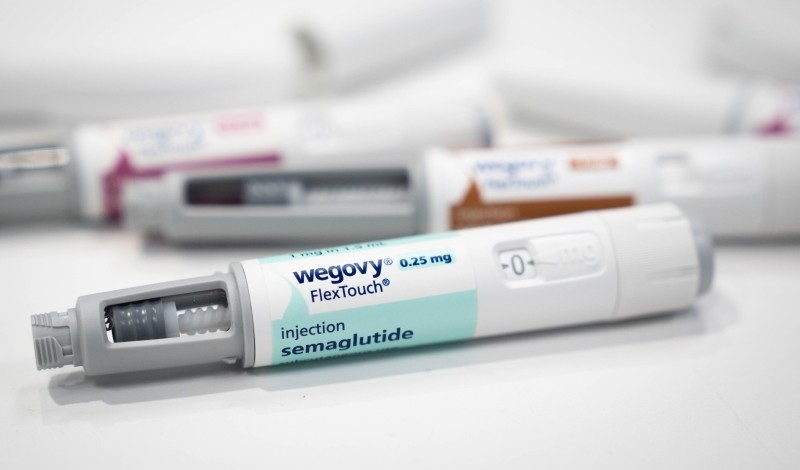
New Rule Seeks to Expand Medicare and Medicaid Coverage of Weight Loss Drugs.
The Biden Administration has proposed a new rule that would expand Medicare and Medicaid coverage for enrollees seeking prescription drugs popularized in recent years as weight-loss expedients.
The shift in coverage could potentially be significant for millions of obese Americans who otherwise could not afford semaglutide-based medications—“miracle drugs” like Ozempic and Wegovy.
According to the White House in an official statement, these prescription weight-loss drugs can cost as much as $1,000 per month. The White House contends that the proposed rule’s expansion of “Medicare coverage would reduce out-of-pocket costs for these prescription drugs by as much as 95 percent for some enrollees.”
The Centers for Medicare and Medicaid Services (CMS), an agency within the U.S. Department of Health and Human Services (HHS), proposed the new rule and invited public comment by January 27, 2025. Before it can issue a final rule, CMS must consider the public comments it receives as a legal matter.
Medicaid, a program jointly operated by federal and state government for predominantly low-income individuals, currently allows state Medicaid programs to cover anti-obesity drugs as “an optional drug benefit” for enrollees classified as obese.
Although approximately one-third of U.S. adults are classified as obese, just 13 states have been reported as having offered this optional coverage to Medicaid enrollees as of August 2024.
According to the proposed rule, similar coverage has been historically excluded from Medicare, a federal health-insurance program covering mainly people aged 65 and older, under its Prescription Drug Benefit (Part D) Program.
Part D currently covers anti-obesity drugs only for obese enrollees who have also been diagnosed with concurrent medical conditions such as cardiovascular disease or Type 2 diabetes.
Under the proposed rule, however, coverage of anti-obesity drugs would be compelled under both Medicare and Medicaid programs for enrollees classified as obese, which the U.S. Centers for Disease Control and Prevention (CDC) defines as having a Body Mass Index (BMI) of 30 kg/m or greater, without requiring a concurrent medical condition. The proposed rule would thus make obesity alone a sufficient condition to have these treatments covered.
CMS makes clear that obesity would also be a necessary condition: Enrollees without qualifying concurrent medical conditions who are overweight, but not obese, would continue to be excluded from coverage under its proposed rule.
Despite the proposed rule’s clear benefit to Medicare and Medicaid enrollees, some commentators have expressed the concern that the proposed rule would classify obesity itself as a “chronic illness” at a cost to the obese community. One commentator opined that the Biden Administration’s “proposal would officially pathologize fatness and treat weight loss as the ultimate goal of this form of health care.”
Adoption of the proposed rule would also likely come with a significant price tag. The Congressional Budget Office estimates that including anti-obesity medications under Medicare coverage would increase net federal spending by $35 billion between 2026 and 2034 and increase the total direct cots of covering anti-obesity medications from $1.6 billion to $7.1 billion from 2026 to 2034.
CMS invited public comment on the proposed rule with a preliminary deadline set beyond the end of President Joseph R. Biden’s term, leaving the decision whether and how to proceed with a final rule to the incoming Trump Administration.
Following his recent win in the 2024 presidential race, President Donald J. Trump announced his intention to create the Department of Government Efficiency in his second Administration—a proposed advisory board aimed at curtailing “wasteful” government spending. Trump selected Tesla chief executive officer Elon Musk and “the CEO of Anti-Woke” Vivek Ramaswamy to lead this entity.
Musk has reportedly used Wegovy for weight loss in the past and recently tweeted that “nothing would do more to improve the health, lifespan, and quality of life for Americans than making” weight-loss drugs available at a “super low cost to the public.”
Musk’s favorable comments and past use might indicate that the Department of Government Efficiency would not oppose adoption of the Biden Administration’s proposed rule. That call, however, will likely be made by a different figure within Trump’s slated Administration—Robert F. Kennedy Jr.
Kennedy Jr., President Trump’s presumptive nominee for Secretary of HHS, has previously criticized the use of drugs like Ozempic to induce weight loss, proclaiming that they will not “Make America Healthy Again”—Kennedy’s reported mandate from President Trump.
As President Trump’s selection to lead HHS, the department that would oversee final adoption of the proposed rule, Kennedy Jr.’s opposition could prove fatal if the American political scion is confirmed by the U.S. Senate.
Given previous bipartisan, bicameral support for lower healthcare costs, Kennedy Jr.’s position on the proposed rule could feature prominently in his future confirmation battle. The first formal hurdle Kennedy Jr. faces on the road toward confirmation would likely come before the Senate Committees on Health, Education, Labor, and Pensions (HELP) and Finance.
Both committees historically hold hearings on HHS nominees as part of the Senate’s constitutionally provided advice-and-consent function. Only the Finance Committee, however, ultimately reports its recommendation to the full chamber prior to a nominee receiving a formal vote on the Senate Floor.
The fight for lower prescription medications has been a constant, if rare, point of agreement between U.S. Senators Bernie Sanders (I-Vt.) and Bill Cassidy, M.D. (R-La.)—the respective Democrat and Republican leaders on the HELP Committee who will foreseeably press Kennedy Jr. on the issue in a future confirmation hearing.
To ensure Kennedy Jr.’s confirmation as HHS Secretary in the incoming Republican-led Senate, President Trump will likely need Senator Cassidy, a senior member on the Finance Committee and the top Republican on the HELP Committee, to support his selection to lead the nation’s leading health department.
Senator Cassidy, slated to become the first medical doctor to chair the HELP Committee in the next Congress, recently expressed reservations about Kennedy Jr.’s stance on vaccines.
Senator Cassidy, who has bucked President Trump in the past, has not yet endorsed Kennedy Jr.’s nomination.



